Prime Minister Anwar Ibrahim is thinking about doing away with PENSION for public officers, and also PENSIONS for MPs/ADUNs/Senators and Members of Administration. He is also talking about
Prime Minister Anwar Ibrahim said politicians or government employees who receive several pensions should fulfil their moral responsibility by choosing just one pension scheme.
SHOCKING to learn that some politicians are getting more than 1 government pension. ADUN you get 1 pension, MP you get another - but if you are in the State or Federal Cabinet you get even more. Some say that now a one-term MP may be earning a pension of about RM6-8k starting from the date they reach 50...
"Some said former ministers or prime ministers who have three or four pensions from the government as assemblymen, MPs and ministers.
"From a moral point of view, choose only one and such a call (to only choose one pension) also applies to Azizah.
"Azizah did not only served as a government doctor but also as a Selangor assemblyman, a member of parliament. However, this morning, she informed me that she will choose only one pension," the Tambun member of parliament said this in his closing speech at the Perak Unity Government Convention at the Hotel Casuarina in Meru here today.
How many pension is Anwar Ibrahim getting - It is sad that Wan Azizah is just now thinking about taking 1 pension only. Maybe, the Pakatan Harapan and BN MPs must IMMEDIATELY choose just 1 government pension, and immediately return the sums taken for the all the other additional pensions that they have been taking up till now - maybe for the last 5 years. After all, we are talking about the Malaysian peoples' monies here >>> and the return of the monies will help the people.
We know that about RM120 BILLION being spent on pensions by 2040. How much was spend on pensions for 2022? 2023?
How much monies was spend on politicians pensions?
The UNITY government politicians should not continue taking more than ONE pension immediately - and not simply rely on the excuse that the law is yet to be amended?
Wonder how much money is Najib, a convicted criminal, is still receiving today?
MPs pension still entitlement after 50 years?(not current Malaysian retirement age). Abolish Gratuity? Limit pensions and derivative pensions?
Disqualification should be at end of criminal appeal - not delayed for other reason? Repeal Article 48(4)(c) FC?Will these criminal MPs still receive very high pensions?
Should
a MP/ADUN/Senator be immediately disqualified on conviction? Why should
people 'be forced' to still have a criminal as MP? REPEAL Art.48(4)
Federal Constitution
What Malaysia needs urgently is a NATIONAL PENSION SCHEME FOR ALL - not just for public/government employees or politicians, judges,...? The current scheme discriminates against workers that work in the private sector or are self-employed > EVERYONE contributes to Malaysia - not just government employees.
We need to provide some monies for all persons after the reach retirement age until they die - ONLY a government run pension scheme will work.
A private scheme is dangerous as there is always the RISK of the private entity going 'bankrupt' and we know that this can happen to big insurance companies, and even banks. A private scheme will not consider the REALITY changes - like the deprivation of the Ringgit(meaning more ringgit needed to buy the same thing), the rise in cost of living, and the 'THEFT' of peoples' monies by the corrupt including politicians and government employees.
PENSION SCHEME - a mandatory minimum contribution monthly starting from a certain age until a certain age. Such a scheme exist in the United Kingdom.
EPF/KWSP - it was a mandatory 'savings' scheme to be used during OLD AGE - but then past governments ALLOWED people to take out the old age savings. YES -it may have helped the government solved contemporary financial concerns, and it was also allowed to withdraw for all kinds of things. END RESULT - there was INSUFFICIENT MONIES to support the livelihood from retirement until death.
Some policies like LOW COST HOUSING - when given to a poor person, it ends up with additional financial obligations that last sometimes up to 30 years, meaning that even after retirement, the monthly financial obligation is incurred beyond retirement age...hence, the monies in EPF/KWSP not enough.
Many workers, who were previously employees find that they lost employment - They were forced to become 'independent contractors' - who then will not receive the mandatory contributions from employer to KWSP and PERKESO. Truck drivers was one example of those affected.
KWSP was good - but it does not guarantee monthly income until OLD AGE. Some finish their savings in a few months/years - then what. Does the government pay minimum allowance to the elderly to ensure survival in their old age??? A National PENSION scheme is the only solution ...
See relevant posts:-
EPF - 68% EPF members have less than RM50,000 - will last only 4 1/2 years? UMNO-BN Failure?
Workers victims of Economic Stimulus Plan - Spend more of money - by reducing savings for old age livelihood?
EPF money is workers' money - Using it impacts on DIVIDENDS? Use government money for charity??
KWSP - RM101 Billion Withdrawals affected ALL members - If no withdrawal, dividends 6.7%, now only 6.2%?
Bila kerajaan akan bayar kembali kepada pekerja swasta wang peribadi yang telah digunakan dahulu semasa pandemik COVID?
Government, Care for ALL - foolish to ask workers to take from their SAVINGS and spend, when they should get direct assistance from Rakyat's monies
Politicians have moral obligation to choose only 1 pension, says Anwar
Prime Minister Anwar Ibrahim says ex-ministers and menteris besar with three to four pensions should choose one and forgo the rest.
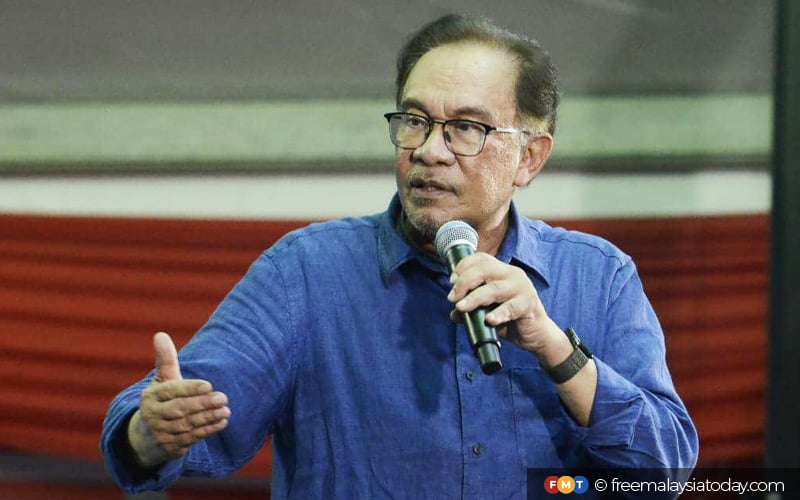
KUALA LUMPUR: Prime Minister Anwar Ibrahim said politicians or government employees who receive several pensions should fulfil their moral responsibility by choosing just one pension scheme.
He said this is because there are former ministers, menteris besar and government officers who are receiving three to four pensions.
“It’s just that from the moral aspect, those earning minister’s or menteri besar’s salaries, or civil servants who get three or four pensions, could perhaps look at the situation, fulfil their moral responsibility by forgoing the other pensions and just choose one, (but) it’s up to them,” he said.
He told reporters this after officiating Zoo Negara’s 60th Anniversary celebration at Dataran Dato’ Ismail Hutson here today.
He was commenting on a statement by the Council of Former Elected Representatives (Mubarak) that the monthly payment given to former elected representatives was “gratuity” and that it should be continued.
Mubarak also called for the government to continue the civil service pension scheme as well.
Anwar said any measures or proposals to abolish the pension scheme for elected representatives and ministers would require amendments to the constitution.
“The Federal Constitution does not allow us to change anything that has previously been agreed upon. What we want to start is a new rule that can come into force for new positions.
“This includes political positions. That’s the proposal we will present to the Cabinet and in Parliament because it involves several amendments.
“So, we cannot just terminate what is existing because it is tied to the agreement in the law and also guaranteed under the constitution,” he added.
Meanwhile, commenting on the International Court of Justice’s (ICJ) decision on the Israeli war on Hamas, Anwar said although it was not fully in favour of the Palestinians, there was, however, a clear stance from the ICJ regarding the conflict.
“At least there is a clear stance of the ICJ condemning the attacks and urging for them to be stopped and humanitarian aid to be expedited,” he said.
The ICJ on Friday ordered Israel to prevent acts of genocide in Gaza but did not order a ceasefire.
Anwar said Malaysia was firm in its stance in condemning the attacks
and will continue to monitor and provide the necessary support as stated
by foreign minister Mohamad Hasan during the United Nations Security
Council Open Debate earlier this week. - FMT, 27/1/2024
Anwar says Dr Wan Azizah is choosing one out of three pensions
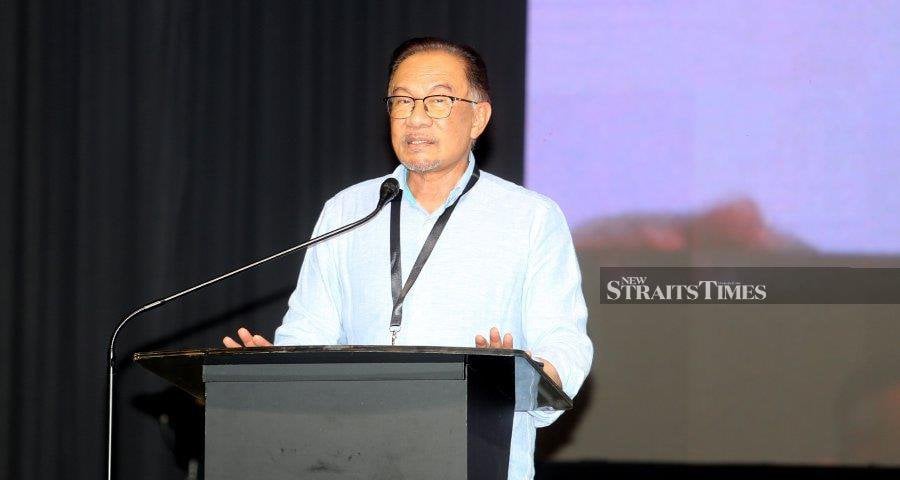
IPOH: Datuk Seri Anwar Ibrahim today reiterated his calls for elected representatives at the state and federal level, who are entitled to more than one pension scheme, to only choose one.
The Prime Minister, who is also the Pakatan Harapan (PH) chairman, repeated such a call and asked politicians to emulate his wife Datuk Seri Dr Wan Azizah Wan Ismail.Ads by
"Some said former ministers or prime ministers who have three or four pensions from the government as assemblymen, MPs and ministers.
"From a moral point of view, choose only one and such a call (to only choose one pension) also applies to Azizah.
"Azizah did not only served as a government doctor but also as a Selangor assemblyman, a member of parliament. However, this morning, she informed me that she will choose only one pension," the Tambun member of parliament said this in his closing speech at the Perak Unity Government Convention at the Hotel Casuarina in Meru here today.
Present were Deputy Prime Minister who is also Barisan Nasional (BN) chairman Datuk Seri Dr Ahmad Zahid Hamidi, Perak Menteri Besar Datuk Seri Saarani Mohamad and Perak Pakatan Harapan (PH) chairman Datuk Seri Dr Mujahid Yusof Rawa.
Meanwhile, Anwar also hinted that potential candidates in the next general election (GE) would have to accept a pension-free scheme for elected representatives.
Anwar said that the proposed abolition of the pension scheme should apply to politicians and not only civil servants.
"I do not agree with the view that politicians should be excluded but as usual I will present this view when we study the abolition of the retirement scheme.
"I will also state that it should also apply to politicians, meaning that those who will be candidates in the next election should accept the fact that their scheme does not include pensions," he said.
Zahid had on Wednesday announced the proposed new pension scheme for the civil service.
Under this method, new hires in the civil service will contribute to retirement schemes like the Employee Provident Fund (EPF) and Social Security Organisation (Perkeso).- NST, 28/1/2024
Govt to Government to foot some RM120bil in pension payments if new salary scheme not introduced, says Zahid
By Farik Zolkepli Nation
Wednesday, 24 Jan 2024 6:34 PM MYT
KAJANG: The government has to spend some RM120bil to cover pension payments by 2040 if new salary schemes in hiring public officers are not introduced, says Datuk Seri Dr Ahmad Zahid Hamidi.
The Deputy Prime Minister said the new salary scheme is expected to be announced by the Public Service Department director-general within this year.
"At the Cabinet meeting, we discussed that there is a confusion in terms of the salary scheme.
"The contract for the service system will be done in the interim period before the new salary scheme is introduced," he told reporters after his working visit to the Civil Defence Force's headquarters on Wednesday (Jan 24).
While the new salary scheme has not been introduced, Ahmad Zahid said it will only be applicable to new hirings, and not existing ones.
"Existing employment, who opt for the pension scheme, still remains as such," he said.
Previously, it was reported that a study on the salary system for public officers is being completed while the contract appointment system for new recruitment in the civil service is temporary.
Communications Minister Fahmi Fadzil said a detailed explanation would be issued soon by the Public Service Department on the matter.
Public Service Department director-general Datuk Seri Wan Ahmad Dahlan Abdul Aziz, in a circular, said that the contract of service system would take effect from Feb 1.
He said the law was still being amended to allow for the creation of a new civil service recruitment method and that the new recruitment method, once implemented, would reduce the country’s fiscal burden. - Star, 24/1/2024
No pension for elected reps appointed to office, says Anwar
Prime Minister Anwar Ibrahim says politicians will not be exempted under the new hiring policy by the civil service.
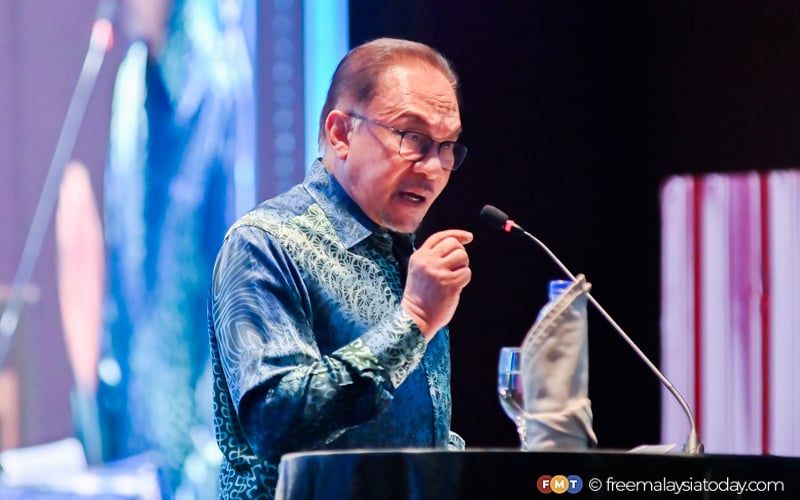
SEGAMBUT : Elected representatives who are appointed to office in future will not receive pension, similar to those recruited as civil servants, Prime Minister Anwar Ibrahim said.
“(In future), if any civil servants are hired, they will not receive pension. The same principle applies for politicians,” Anwar told reporters when met here.
Recently, the public services department (JPA) announced that new civil servants would be appointed on a contractual basis pending a new policy on hiring civil servants for permanent posts without pensions.
Anwar added that many countries, including Malaysia, are facing some economic hardship, which requires some change in the way things are done financially.
“However, any changes the government wishes to make must be preceded by proposals and discussions, including those involving the abolition of pensions, before being finalised.”
On Wednesday, deputy prime minister Ahmad Zahid Hamidi echoed JPA’s announcement, saying that new civil servants would contribute to EPF and Social Security Organisation (Socso).
Meanwhile, speaking on the national football team, Anwar congratulated and thanked the team for giving South Korea a run for their money in their final Asian Cup group match last night.
He also announced an extra allocation of RM5 million to the Football Association of Malaysia (FAM) to enhance the national team’s management.
“This allocation will be given immediately,” he said.
Last night, a late equaliser from Romel Morales helped Harimau Malaya grab a 3-3 draw against Asian Cup favourites South Korea.
The draw, however, failed to take Malaysia into the knockout stage as only the top two teams in each group and the four best third-placed teams progressed.
Harimau Malaya were placed fourth in their group with one point having lost their first two matches to Jordan and Bahrain. - FMT, 26/1/2024
How much do our MPs and assemblymen earn? Here are the numbers
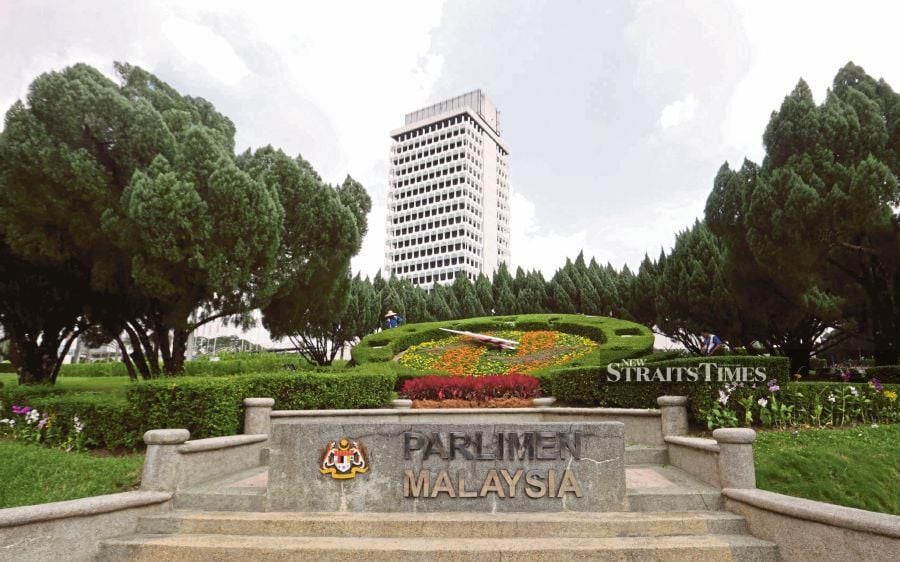
KUALA LUMPUR: Should ministers, members of parliament (MPs) and state assemblymen take the lead first in forgoing their pensions?
Following the furore over the proposed abolishment of the pension scheme for new government hires, many quarters have called for the elected representatives to be ineligible for the pension scheme.
The announcement by Deputy Prime Minister Datuk Seri Dr Ahmad Zahid Hamidi, who cautioned that the government would be spending RM140 billion on pensions by 2040 if new salary schemes aren't introduced, has since sparked a flurry of responses.
Umno Youth was among the first to raise the idea, followed by MCA Youth, which commended the call for pension abolition and suggested that ministers and MPs should lead by example in accepting these changes.
Cuepacs added its voice to the chorus of dissenters, saying that MPs and state assemblymen should be subjected to the same conditions first, and added that many elected representatives, with high salaries and allowances, only serve for five years before qualifying for a lifelong pension.
The New Straits Times takes a quick look at how much MPs and assemblymen can earn.
SALARIES, ALLOWANCES AND PERKS
As per the Members of Parliament (Remuneration) Act 1980, an MP's monthly salary, including their allowances, could work out to an average of RM25,700.
Additionally, MPs can claim various allowances or subsidies for specific purposes. For instance, they receive RM400 per day for attending parliamentary sittings and a one-time allowance of RM1,000 every three years to purchase black-tie attire.
Below is a list of allowances they qualify for:
• Salary: RM16,000 per month
• Parliamentary sitting attendance: RM400 per day
• Government agency meetings/ workshops attendance: RM300 per day
• Entertainment allowance: RM2,500 per month
• Special payment for non-administration MP: RM1,500 per month
• Fixed travel allowance: RM1,500 per month
• Fuel allowance: RM1,500 per month
• Toll allowance: RM300 per month
• Driver allowance: RM1,500 per month
• Handphone purchase: Up to RM2,000 every two years
• Phone bill allowance: RM900 per month
• Purchase of computer: Up to RM6,000
• Black-tie attire subsidy: RM1,000 every three years
• Ceremonial attire allowance: Up to RM1,500
• Warm clothing allowance
• Free vehicle license
• Official trips - Business class air travel
• Official trips - First-class rail travel
• Domestic duties exceeding 32km from home: Hotel allowance up to RM400 a night
• Daily stipend during business trips: Domestic - RM100 a night/ International - RM170 a night
• Food allowance when overseas: RM340 a night
• First-class single-room ward in government hospitals: Free
MPs also become eligible for a pension after completing 36 months of reckonable service and upon reaching 50.
WHICH STATE HAS THE BEST-PAID ASSEMBLYMEN?
Meanwhile, assemblymen reportedly receive a monthly allowance of between RM6,000 and RM15,000 each on average.
Assemblymen from Sarawak recorded the highest monthly salaries at RM15,000, followed by Melaka at RM12,000, Selangor and Penang each at RM11,500, and Kedah, Terengganu, and Pahang each at RM11,000.
Perak and Perlis registered the lowest salaries for their assemblymen at RM6,000 per month.
The most recent salary adjustments for state assemblymen were predominantly based on increments in 2013, except for Melaka (2023), Sabah (2022) Johor, Penang, Terengganu, Kelantan, and Pahang (2015), as well as Negri Sembilan (2014).
Some MPs and assemblymen also sit on the boards of government-linked companies, the chairmanship of which could see them pocket an additional RM40,000 and RM50,000 a month.




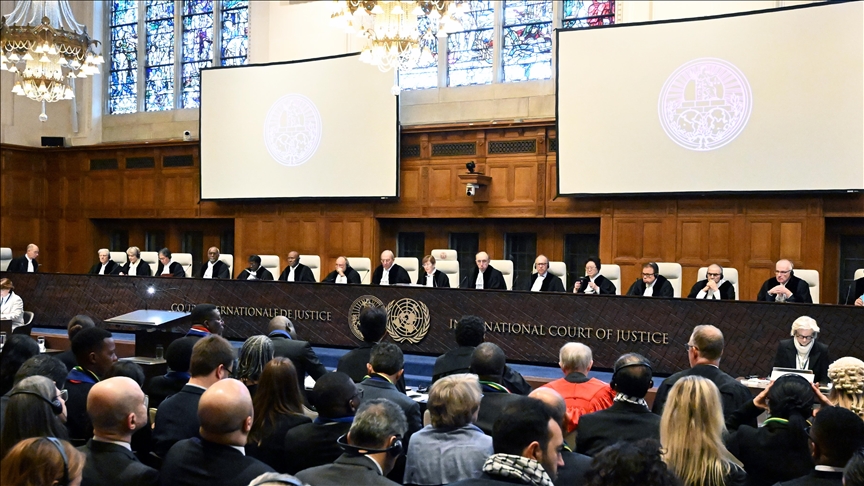
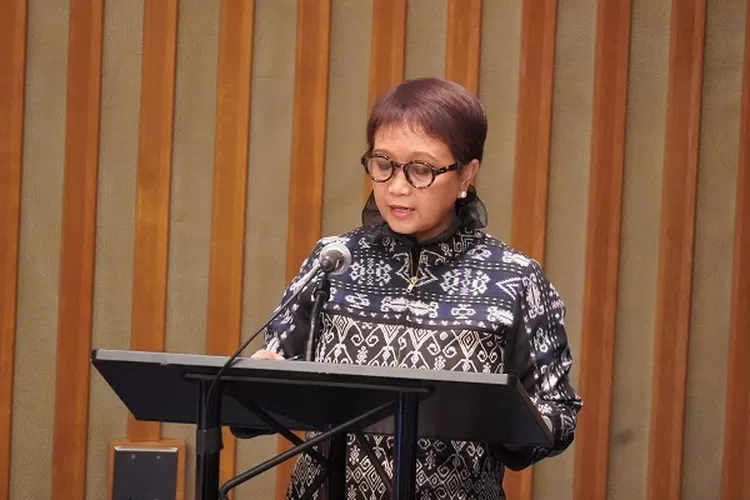
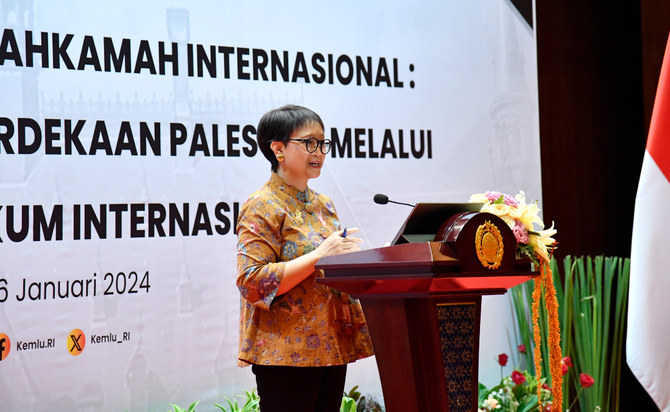
![A person waves a Palestinian flag outside the U.S. Embassy in support of Palestinians in Jakarta, Indonesia on January 15, 2024. [Garry Andrew Lotulung - Anadolu Agency]](https://i0.wp.com/www.middleeastmonitor.com/wp-content/uploads/2024/01/AA-20240115-33439200-33439197-THOUSANDS_OF_SHOES_LEFT_OUTSIDE_THE_US_EMBASSY_TO_SHOW_SOLIDARITY_WITH_PALESTINIANS_IN_JAKARTA.jpg?fit=1200%2C800&ssl=1)








